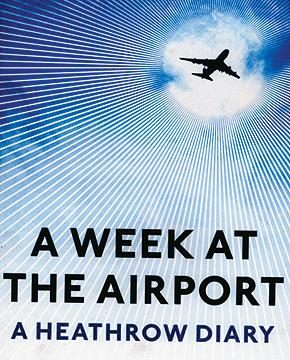Given the amount of time most of us spend in them, airports are under-appreciated. They feature in literature or cinema as places that might harbour hijackers, terrorists, bombs, aliens or even snakes.
They conjure up unpleasant memories — the sweaty socks of a hundred other souls in Economy, rubbery meals shrouded in plastic, bullying passport officials, and even for the souls who slip from first class lounge to stretch limousine, airports are places of transit. Even Rana Dasgupta’s richly inventive Tokyo Cancelled, set in an airport, paid obeisance to the imagination of travellers, not to the tired plastic reality of the departure lounge.
In this slender book, Alain De Botton condenses his experience of spending a week at Heathrow airport. He was allowed complete access, and absolute freedom; but this is not an investigative report into the ills of the contemporary aviation industry. De Botton has never committed an unfinished, unclear thought to paper, and in the span of 111 pages, he produces a beautiful, modern meditation on displacement, relationships, travel and identity.
He understands that airports, in their stern functionality, stir “unfocused images of nostalgia and longing: Tel Aviv, Tripoli, St Petersburg, Miami, Muscat… all of these promises of alternative lives, to which we might appeal at moments of claustrophobia and stagnation.” De Botton tracks a pair of parting lovers, a large family imploding under vacation stress, meets and understands the learned paranoia of security officials, watches the impersonal construction and deconstruction of thousands of sanitised meals, ponders the principle of exclusion demonstrated by the first class lounge. “My notebooks grew thick with anecdotes of loss, desire and expectation, snapshots of travellers’ souls on their way to the skies,” he writes, and with consummate skill, de Botton distils these for us.
Perhaps de Botton, constricted by the need to make something out of his assignment, reads a little too much into the symbolism of arrival and departure — the airport looms inescapable in most of our lives, but it is not perhaps as sacred a space as he claims. But for frequent flyers, and nervous travellers, and those who might want a space of peace and reflection in the middle of our increasingly busy days, A Week At The Airport serves the same function as a meditation mat, a morning run in the park. You could want no better, illuminating or insightful guide on your travels, whether for pleasure, for business, for adventure, an uprooting or a return, than de Botton’s quiet, thoughtful company.




